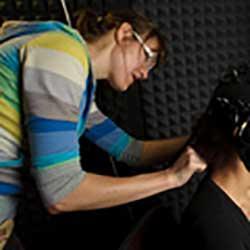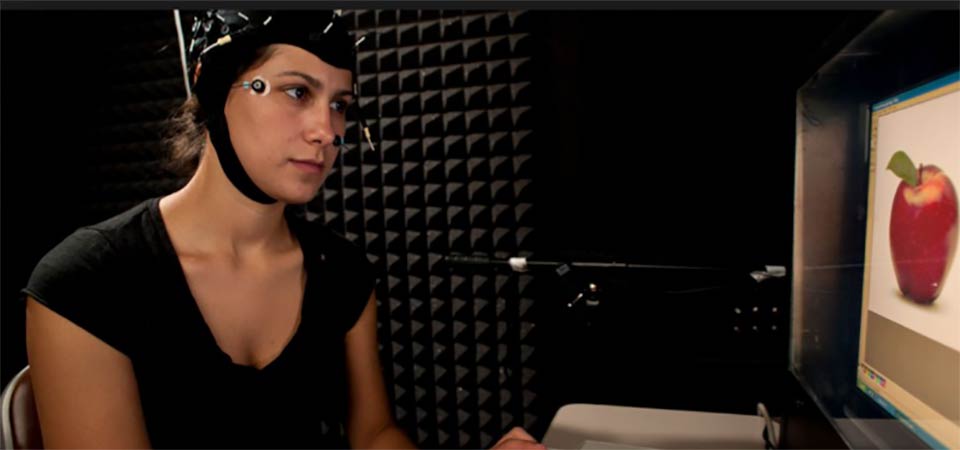Discovering Bilingualism in the Brain
C.L.A.S.S. Psychology Professor Submits Proposal for the National Science Foundation’s MRI Grant for the Acquisition of an Electroencephalography (EEG) System to integrate research and training on language, cognition, and neural plasticity.
Assistant Professor Eleonora Rossi from the Department of Psychology and Sociology is currently working on a grant proposal for the National Science Foundation’s Major Research Instrumentation Program that assists in increasing access to scientific and engineering instruments. In addition, this is the first time a grant proposal has been written for obtaining a scientific instrument for the College of Letters, Arts, and Social Sciences.
The grant would allow the department to house an Electroencephalography (EEG) machine on campus, which will be used to research language, cognition, and neural plasticity of the brain through the lenses of bilingual language processing. “It’s the window to the brain,” says Dr. Rossi. This grant will also establish cross-institutional collaborations with the Psychology Department at UC Riverside (Dr. Judith Kroll), and with Penn State University (Dr. Giuli Dussias). Both UC Riverside and Penn State have matching EEG systems and newly established neuroimaging centers which include a functional magnetic resonance imaging (fMRI) facilities. This collaboration will enable the creation of a network of students and research across institutions. If the grant is obtained, the machine could be in the department as soon as Fall 2016.

Dr. Rossi is interested in researching what areas of the brain are being activated when a person speaks two languages, and how speaking two languages will impact the brain and the mind throughout the lifespan. She hopes to test bilingual students on campus, and in the community. Psychology students will have the opportunity to conduct active research projects using the EEG methodology and will gain hands-on experience in neurophysiological research.
Dr. Rossi’s ultimate goal is to start a Bilingualism Matters chapter in Southern California due to our dynamic bilingual population. Bilingualism Matters is a non-profit organization founded by Dr. Antonella Sorace at the University of Edinburgh whose mission “is to interface current research on bilingualism and second language learning with local community members, schools, and policy-makers.” A local chapter would give the community an opportunity to network and get advice from experts in the field.
Recently, Rossi participated in the “Bilingualism: Brain, Mind, and Family” Lingua Franca Speakers series, which is an ongoing public lecture series conducted by the Department of English and Foreign Languages. In a room full of eager faculty and students, she discussed the latest scientific findings on bilingualism, and their implications on the brain, education and social practice. The overall goal for her presentation was to demystify the myths related to bilingualism, and to shed a positive light on language learning. “It’s never too late to learn a new language,” says Rossi.
To learn more about Rossi and her research, please visit her web page.
Written by Stephanie Salazar

